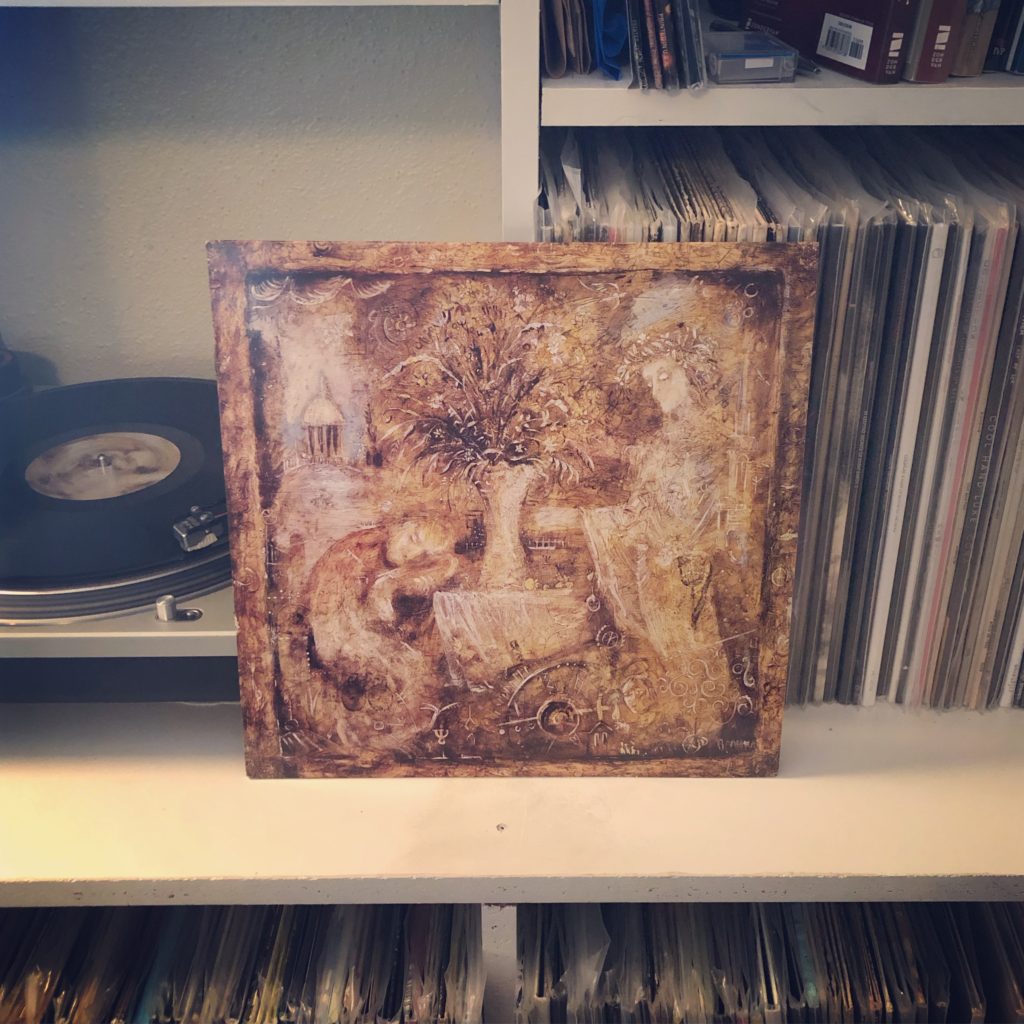
In the summer of 2004, I found a copy of [A–>B] Life by mewithoutYou in the church camp bookstore for $7. I had seen the name trudging through the Tooth and Nail website (the things we used to do to find new music), and I was enchanted by Vasily Kafanov’s album art, so I took a chance on it.
On first listen, I hated it.
But following along with the lyric sheet, I realized that there might be a worthwhile experience if I could dig in deeper. So I listened again. And again. And a few more times.
And over a few listens, I became fully convinced of the genius of this bookish, experimental post-hardcore outfit.
My initial resistance is not unusual. Aaron Weiss’s idiosyncratic delivery is a stumbling block for many listeners. He doesn’t scream like most hardcore vocalists, but rather shouts like a spoken word poet. It makes for an unusual listening experience, but it’s an excellent vehicle for his reference-heavy, introspective lyrics.
Bits of this were evident on I Never Said That I Was Brave, but on that EP, he mostly pushed his voice into a sort of barking shout. It wasn’t necessarily unpleasant to listen to, but it never sounded quite natural. By the time [A–>B] Life came around, he had adjusted his voice to the impassioned holler that has since become known as his trademark.
And through that voice, he delivered some of the most impassioned lyrics the punk scene had ever known. Every single line was fodder for scribbling on school desks and notebooks (which I absolutely did). It’s easy to forget now that certain Tooth and Nail bands have released songs with profanity, but the fact that a band on a Christian label would be this honestly introspective was revolutionary at the time. In fact, it’s a pretty easy argument that Aaron is one of the most influential thinkers among 2000s youth group kids, but that’s another article.
While most of the talk about mewithoutYou has centered around their frontman, ignoring the rest of the band is a mistake. Because behind all of Aaron’s raving and hollering, his bandmates were just as experimental, which gathered more comparisons to Fugazi than to Black Flag. There might be some tropes of hardcore punk here, but they are few and far between.
Instead of the detuned riffing of most hardcore bands, Mike Weiss (Aaron’s brother) and Christopher Kleinberg conjure up fiery guitar lines run through copious effects pedals (see the twin instrumentals, [A] and [B], which sound like synths). Bassist Daniel Pishock grooves more than he thrashes. And while drummer Rickie Mazzotta is just as frantic as his peers, he does all of it without a double bass pedal.
It’s not all punk fury though. The band spends plenty of time in ambient jam passages—as forecast on Brave’s “Four Word Letter.” “Silencer” finds the band playing a restrained, almost jazzy groove as Aaron wails above it. The Vonnegut-referencing “Everything Was Beautiful and Nothing Hurt” bubbles beneath the surface for its entire five-minute running time, riding a relaxed bass groove and melodic vocals before exploding into a noisy cacophony. The acoustic hidden track (sung by Dan Pishock, not Aaron) became a fan favorite. Aaron even performed it at Cornerstone one year.
But the true mark of this record is just how cohesive it is. The record starts with a full head of steam and rolls on without stopping. Songs start without waiting for the one before to finish. Across the first seven tracks, there is only one pause, between “Nice and Blue” and “Everything…” The record is forty minutes long, but it feels much shorter due to the sheer energy packed into these songs.
While the band might be a little unhappy with this record, that didn’t stop them from performing the record in its entirety during the [A–>B] Live tour. And while their sound has evolved a ton since their first full-length, these songs are just as fresh now as the first time I heard them—except now I love it.